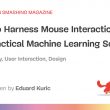MongoDB has debuted new capabilities for MongoDB Atlas that make it faster and easier to build, deploy, and run modern applications with the performance and scale organizations require. MongoDB Atlas a widely distributed developer data platform, and tens of thousands of clients and millions of developers rely on its industry-leading operational database and integrated data services to power business-critical applications across cloud providers.
The general availability of MongoDB Atlas Stream Processing makes it easier to use real-time data from a wide variety of sources to run highly responsive applications. MongoDB Atlas Search Nodes on Microsoft Azure give organizations more flexibility for optimizing the performance and cost of generative AI workloads that drive intelligent applications at scale. MongoDB Atlas Edge Server reduces the complexity of managing data for distributed applications that span locations from the cloud to on premises to devices at the edge.
“Customers tell us they love MongoDB Atlas because it provides an integrated set of capabilities on one platform that can store and process their organization’s operational data across all of their applications,” said Sahir Azam, Chief Product Officer at MongoDB. “Customers also tell us that MongoDB’s highly flexible and scalable document data model is a perfect fit for powering modern applications that can take advantage of generative AI and their real-time proprietary data. The additional services we’re launching today for MongoDB Atlas not only make it easier to build, deploy, and run modern applications, but also make it easier to optimize performance while reducing costs.”
The new MongoDB Atlas capabilities announced today enable organizations of all sizes across industries to build, deploy, and run next-generation applications with the security, resiliency, and durability today’s business environment demands:
Simplify building highly responsive applications with streaming data: Now generally available, MongoDB Atlas Stream Processing enables developers to take advantage of data in motion and data at rest to power event-driven applications that can respond to changing conditions. Streaming data—coming from sources like IoT devices, customer browsing behaviors, and inventory feeds—is critical to modern applications because it allows organizations to create dynamic experiences as end-user behaviors or conditions change. However, streaming data is highly dynamic, and inflexible data models are not ideal for building event-driven applications that need to continuously adjust to the real world. Because it is built on a flexible and scalable data model, MongoDB Atlas Stream Processing allows organizations to build applications that analyze data in motion and at rest and make adjustments to business logic in seconds. For example, organizations can build applications that dynamically optimize shipping routes based on weather conditions and supply chain data feeds, or can continuously analyze financial transaction data feeds and purchase histories for AI-powered fraud detection in near-real time. By using MongoDB Atlas Stream Processing, organizations can do more with their data in less time and with less operational overhead.
Optimize the performance and efficiency of generative AI applications: MongoDB Atlas Search Nodes—generally available on AWS and Google Cloud, and now in preview on Microsoft Azure—provide dedicated infrastructure for generative AI and relevance-based search workloads that use MongoDB Atlas Vector Search and MongoDB Atlas Search. MongoDB Atlas Search Nodes are independent of core operational database nodes and allow customers to isolate workloads, optimize costs, and reduce query times by up to 60 percent. In addition to helping optimize performance and cost, MongoDB Atlas Search Nodes enable organizations to run highly available generative AI and relevance-based search workloads at scale for the most demanding applications. For example, an airline company can use MongoDB Atlas Search Nodes to optimize the performance and scale an AI-powered booking agent experiencing a surge in usage by seamlessly isolating the vector search workload and scaling the required infrastructure—without resizing the required compute or memory resources for their operational database workload.
Deploy applications that seamlessly connect from the cloud to the edge: Now available in public preview, MongoDB Atlas Edge Server gives developers the capability to deploy and operate distributed applications in the cloud and at the edge. MongoDB Atlas Edge Server provides a local instance of MongoDB with a synchronization server that runs on local or remote infrastructure and significantly reduces the complexity and risk involved in managing applications in edge environments. With MongoDB Atlas Edge Server, applications can access operational data even with intermittent connections to the cloud. For example, a hospital system can use MongoDB Atlas Edge Server to help enable applications running on patient healthcare devices to remain functional during power outages and connectivity disruptions. With Atlas Edge Server, their data will automatically synchronize once connectivity is restored. MongoDB Atlas Edge Server also supports data tiering to prioritize the synchronization of critical data to the cloud, reducing network congestion. And, MongoDB Atlas Edge Server maintains a local data layer to reduce latency and enable faster actions based on real-time data. With MongoDB Atlas Edge Server, organizations can seamlessly run highly available, modern applications closer to end-users with less complexity.
MongoDB Customers
Acoustic is a customer-obsessed marketing technology company committed to creating powerful tools that are easy to use. “At Acoustic, our key focus is to empower brands with behavioral insights that enable them to create engaging, personalized customer experiences,” said John Riewerts, EVP of Engineering at Acoustic. “With Atlas Stream Processing, our engineers can leverage the skills they already have from working with data in Atlas to process new data continuously, ensuring our customers have access to real-time customer insights.”
Bosch Digital supports and consults the entire Bosch Group with all its business units in implementing digital business and scalable solutions. “We don’t do anything theoretical at Bosch Digital, and with MongoDB we can keep building on past experience,” said Steffen Gürtler, Senior Expert of IoT Data Management at Bosch Digital. “We don’t have to start from scratch, which means we can innovate much faster with less effort.”
Based in Italy, Eni is a leading integrated energy company with more than 30,000 employees across 69 countries. “MongoDB Atlas is simple to integrate and makes it easy to ingest and deduplicate data from other systems,” said Sabato Severino, Senior AI Solution Architect for Geoscience at Eni. “The advanced security features such as authentication, authorization, and encryption of data in transit and at rest are vital to protect data and reduce the risk of loss. Since moving to MongoDB Atlas, we’ve significantly reduced development time thanks to the platform’s streamlined management features and user-friendly dashboard. That has translated into significant cost savings for our organization.”
Forbes champions success by celebrating those who have made it, and those who aspire to make it. “Key deliverables we achieved with MongoDB Atlas were speed of provisioning, maintenance, and disaster-recovery times,” said Sameer Patwardhan, SVP of Technology at Forbes. “The flexible data structures allow faster iterative development and greater innovation than you would get with any other solution.”
Meltwater empowers companies with a suite of solutions that spans media, social, consumer and sales intelligence. By analyzing ~1 billion pieces of content each day and transforming them into vital insights, Meltwater unlocks the competitive edge to drive results. “MongoDB Atlas Stream Processing enables us to process, validate, and transform data before sending it to our messaging architecture in AWS powering event-driven updates throughout our platform,” said Cody Perry, Software Engineer at Meltwater. “The reliability and performance of Atlas Stream Processing has increased our productivity, improved developer experience, and reduced infrastructure cost.”









